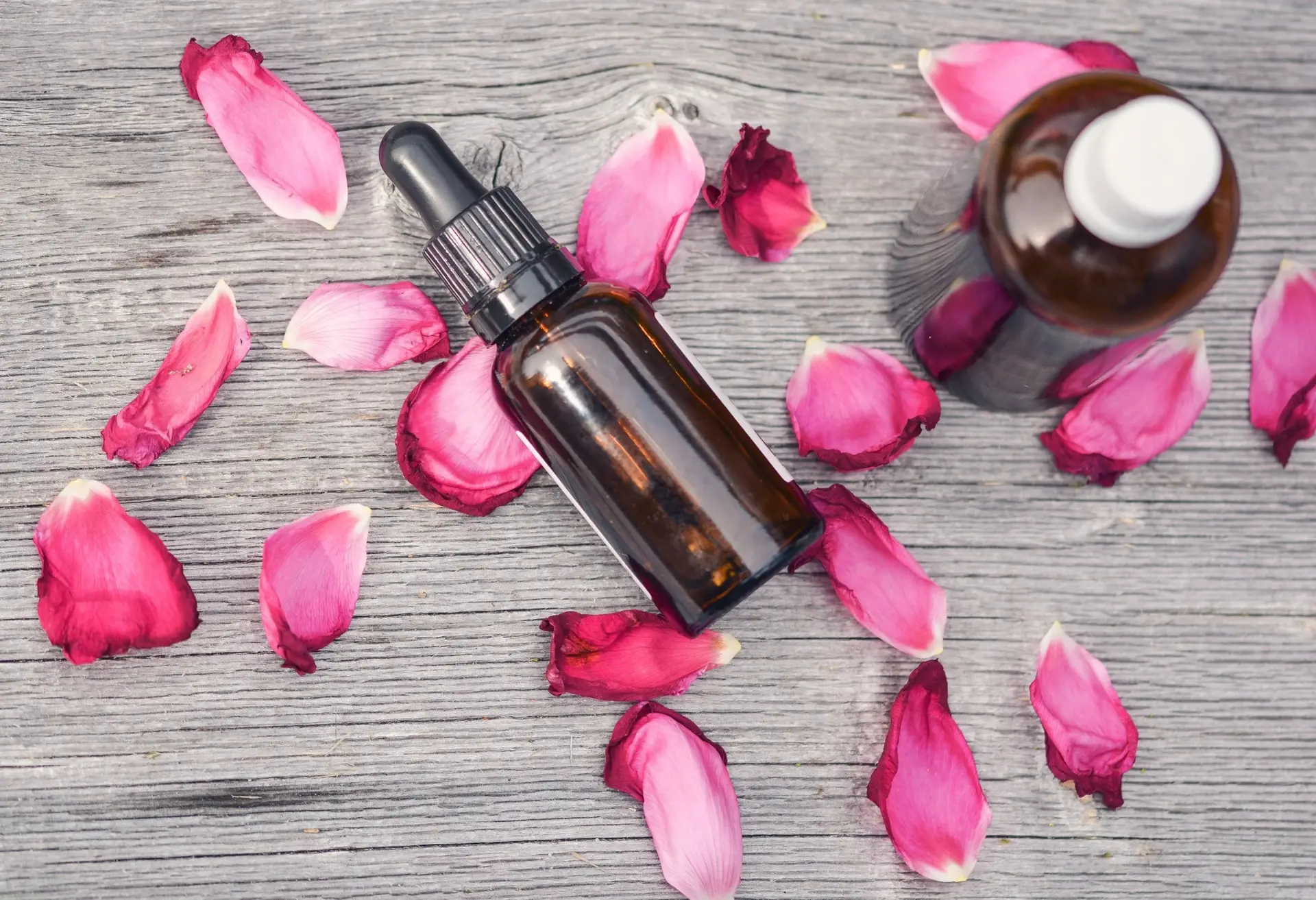“Nothing revives the past so completely as a smell.”
-Vladimir Nabokov
Aromatherapy therapeutically uses essential oils. For centuries, essential oils have been used to help treat all kinds of issues, including physical, emotional, and mental health disorders. Essential oils come from plants, flowers, fruits, leaves, stems, roots, seeds, and bark. They are super concentrated. It takes about 220 pounds of lavender flowers to make about 1 pound of essential oil. Pure essential oils can be volatile, meaning they evaporate quickly when exposed to open air and they can easily penetrate the skin.
HOW DO THEY WORK?
Our sense of smell accounts for 75% of what we taste. Remember the last time you had a cold and couldn’t breathe through your nose? Food didn’t taste the same and you probably lost your appetite. So, how does your sense of smell work? First, the scent enters your nasal passage then it travels up through your nasal cavity until it reaches your olfactory bulb. Finally, the olfactory build sends the scent to the limbic region in the center of your brain. Here it is processed and your brain releases neurochemicals. Smells actually trigger a “memory response”. These memories can affect your stress level, body temperature, and even your appetite.
Essential oils are used in a variety of forms – from inhalants and teas to lotions and sprays. Essential oils are used for many issues, from anxiety, and depression, to insomnia and appetite suppression. It’s a great way to avoid using chemicals and is worth a try with your doctor’s support.
My Favorite Essential Oils for Relaxation and Stress Reduction
Peppermint– Inhaling peppermint essential oil can reduce sugar cravings and can help you feel full faster. If you don’t have a diffuser, try applying a couple of drops on your temples or chest, or take a couple of deep inhalations directly from the bottle.
Grapefruit– Grapefruit oil happens to be my all-time favorite! It’s known to lower cravings and hunger, which makes it a great tool to use when you are learning the difference between physical and emotional hunger. Try adding a few drops to your water or tea. You can also diffuse it in your office or home, or massage some onto your chest and wrists when a craving strikes.
Cinnamon– Cinnamon oil can help regulate blood glucose levels. It’s a great oil for anybody with diabetes. It helps balance blood sugar. Over the long term will help with weight loss and help reduce those sugar cravings. Unstable blood sugar can lead to overeating, low energy, and weight gain, but adding cinnamon oil to fruit, tea, oats, baked goods or smoothies helps slow the rate at which glucose is released into the blood. One word of caution: DO NOT put it directly on your skin- it can cause redness/ burning so put a few drops in a carrier oil like coconut or almond if you want to use it for massage.
Lavender– Feeling stressed out? Take a hot bath with lavender oil in the water or put on lotion infused with lavender. Breathe in the scent deeply to help it work faster.
Chamomile – If you suffer from insomnia it can affect your mental health all during the day. It’s important to treat this problem of lack of sleep. One way you can do that is to enjoy a nice cup of caffeine-free chamomile tea before bed.
Jasmine– This essential oil can help reduce heart rate, stress, and even blood pressure. You can inhale it or rub it into the skin (which also is a way to inhale the essential oil) to enjoy its healthful properties.
Sandalwood– This essential oil can treat anxiety, insomnia, and even digestive issues. Mix the oil with almond oil and rub it into the skin, or sprinkle on a cloth to inhale.
Rosemary– Finding rosemary-infused topical lotions is easy because they can help relieve aches and pains, as well as give a boost of energy to help you get your day started.
Lemon– Bright and fresh-smelling, lemon can enhance your mood by improving your circulation and immunity. Use lemon drops, lemon tea, and lemon soy candles to improve the mood of any room at any time.
Everyone reacts differently to scents so you might need to experiment with the right scent for you to treat the issues that you have identified. Some people feel energized with scents like lemon and peppermint; others feel better when they use calming scents like lavender or chamomile. Try one scent at a time for a period of at least a week to figure out what works best for you.
The National Association for Holistic Aromatherapy (www.naha.org) and the Alliance of International Aromatherapists (www.alliance-aromatherapists.org) are two organizations that have national educational standards for aromatherapists.
13 Ways to Manage Stress That Don’t Involve Eating
Sacred Vessels: Your Body is a Sanctuary of Self-Love and Healing










